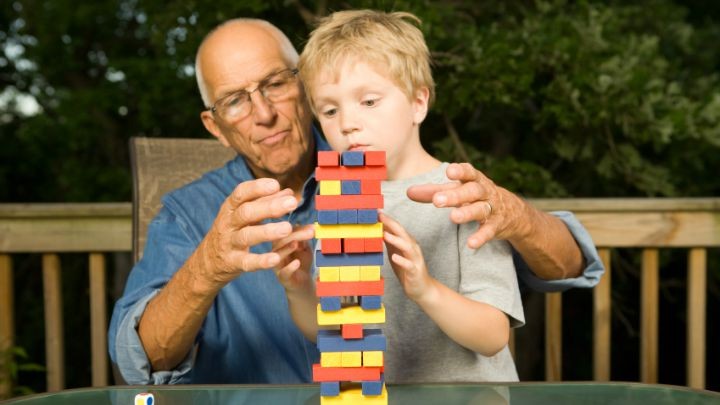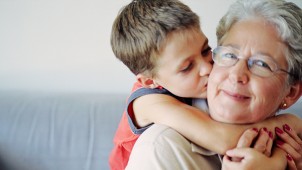How to help your grandkids to deal with loss

“Oh, she’s too young to understand.” You might have heard this so many times when people try to decide whether to include children in discussions about death.
Some kids don’t know what death is and the news is “softened” by using words like “gone away” or “up in heaven”.
Different families handle the situation differently and it also depends on the type of death involved – was the death sudden, or did the illness last a long time?
There are families who encourage their kids to visit a dying person or attend a funeral so they would learn about life. And then there are families who shield their kids away for fear that this sad experience might spark a new anxiety in them.

Sometimes, grandparents become the custodial parent if something happens to both parents of the child. When this happens, Dr Phyllis R. Silverman said, “They need to know the same things a grieving parent should know.”
“They are taking on the parenting role at a time in their own lives when they thought they were finished with this work.”
A grandmother reflected on what happened when her daughter became ill: ” We were devastated when my daughter was told she had cancer and there was no good treatment that would save her life. We were planning on retiring and we were considering moving out of the area. Instead they moved in with us. We knew we were the only ones to offer to care for her two teenagers. We did what we needed to do. All our plans changed and sometimes I think her children are helping us as much as we help them.”
Grandparents also step in to take care of their grandkids when a surviving parent has to work. “My grandmother is there when I get home. She doesn’t live far away. She tries to have cookies and hot chocolate like my mother used to do, and she takes care of my little sister. We talk about school and sometimes we talk about my mother. I like that,” said an eight-year-old who lost his mother.

Even though grandparents may have grown up in a time where death is not a topic that is shared with the children, they still need to learn how do it right.
Here’s Dr Silverman’s list for any generation to consider when it comes to helping a child cope with loss.
What to do when your grandkids are dealing with loss
1. Be honest. A child’s world has been shaken, and your honesty will give them a sense of trust.
2. Use the words “dead,” “death,” and “dying.” Children need concrete words and concepts they can understand. If you say “gone away,” then a child will want to know when they will return and why did they want to leave them now.
3. Allow (but don’t force) children to attend the funeral services, and or the viewing. Prepare them for them for what they will see and hear. When a surviving parent or grandparent is occupied during the service or viewing, you may want to ask someone they trust to stay with the children in order to explain what is happening, to comfort them, and to answer questions.
4. Be open about your own grief and feelings, not necessarily in great detail, but enough to let them know that you are grieving, which will help them absorb that it is all right to grieve. They may be facing unusual and strong feelings with which they have little experience, such as fear, anger, and sadness.
5. Be tolerant of their feelings and behaviour. Let them know it is okay to cry and to be sad.
6. Encourage questions. Realise that their questions may be repeated frequently over the course of time. Be patient, even if you have to say the same thing many times.
7. Offer some activities that may help the child honour and remember the parent who has died like making scrapbooks or photo albums, telling and writing stories, and creating family trees.
8. Give them consistency as much as possible. It gives the children a sense of security. They are facing a changed family constellation. They may not be living in the same house anymore.
When should you start speaking to a professional?
According to Hospice, it’s time to talk to teachers, school psychologists, social workers, or hospice staff if your grandchild shows any of these signs:
1. Having trouble sleeping.
2. Showing disruptive behaviour at school.
3. Doing poorly in school, if this is a change.
4. Acting differently, such as being quiet and sad when before they were happy and talkative.
5. If you do not know how to handle certain situations and want to talk them over with someone other than family members.








 Proudly Australian owned and operated
Proudly Australian owned and operated